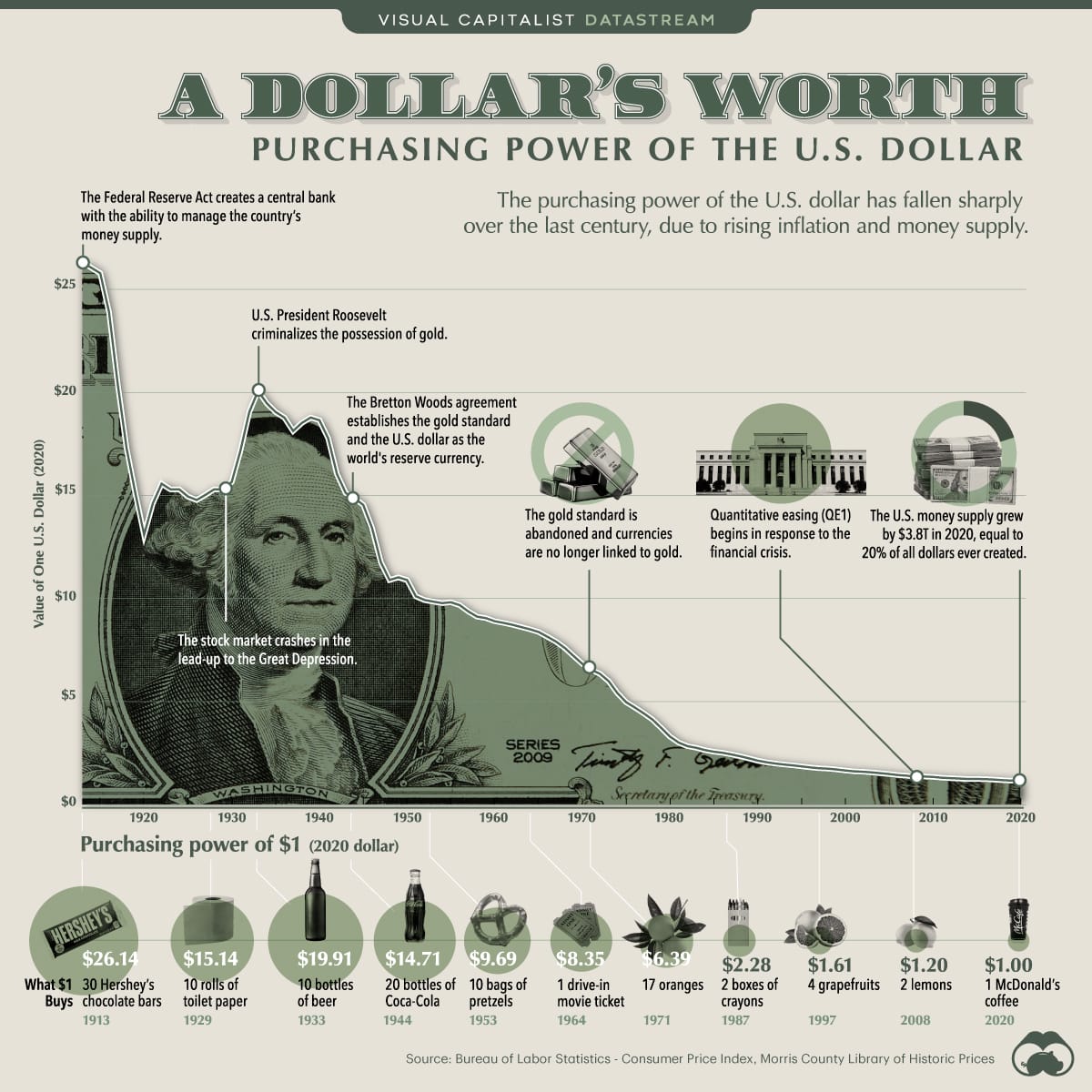As we herald the official launch of the Bitcoin Exchange Traded Fund (BTC ETF), it's imperative to reflect on the journey that brought us here. The year 2022 was not merely a 'crypto winter'; it was akin to an ice age for the digital asset domain. This period, marked by a significant erosion of economic value and confidence, saw the crypto landscape littered with the remnants of failed projects and firms. Yet, much like the aftermath of the dot-com bubble, this challenging phase may very well signify a pivotal moment – a transition from speculative frenzy to a stable, innovative era in internet finance.
The implosion of the crypto bubble in 2022 can be likened to the burst of the dot-com bubble in the early 2000s. In both scenarios, the aftermath saw the baton of progress handed over to more robust and sustainable business models and technologies. For the world of cryptocurrency and blockchain, this shift could mark the beginning of a Cambrian explosion of responsible, always-on internet financial services.

Blockchain and cryptographic technologies, the bedrock of the Web3 revolution, have applications that stretch far beyond financial services, influencing a plethora of industries and activities. Yet, it is within the realm of financial services that these technologies continue to undergo fervent experimentation. Observing the actions of established financial institutions, rather than their rhetoric, reveals the true testament to the staying power of these digital assets and blockchain technologies.
In this context, the most notable transformation has been witnessed in the attitudes of major financial players like JPMorgan. Once skeptics of crypto and blockchain, these institutions now lead the charge in embracing Web3 technologies. This shift is not merely a trend but an inevitable step, akin to how these institutions previously adapted to cybersecurity and digital transformation challenges.
The journey of crypto technology has not been devoid of pitfalls. Historically, groundbreaking technologies have often been misused by nefarious actors, fueled by human weaknesses like greed and ignorance. The crypto sector, particularly in its nascent stages, was no exception, magnifying risks and enabling swift punishment for missteps. However, the response to such challenges has never been to shun the technology altogether. Instead, the focus has always been on promoting responsible use and placing these powerful tools in the hands of those who can harness them for good.
The regulatory challenges posed by the high-profile failures in the crypto space in 2022 are significant. Yet, they also present an opportunity for nations to foster responsible competition and innovation. As we step into this new era marked by the launch of the BTC ETF, it's clear that cryptography and blockchain will remain indispensable tools in the economic landscape, despite their past misuses.
What’s Next for Bitcoin: Navigating the New Era of Crypto
The recent SEC approval of the Bitcoin Exchange Traded Fund (ETF) has sent ripples through the financial world, marking a pivotal moment in the journey of cryptocurrency towards mainstream acceptance. The buzz is palpable, with key industry figures like Cathie Wood, CEO of Ark Invest, projecting a skyrocketing value for Bitcoin. Wood's base case of $600,000, and an even more optimistic bull case of $1.5 million by 2030, underscore a growing confidence in Bitcoin's long-term value.
This optimism is not unfounded. Bitcoin has outperformed every major asset class in 8 of the last 11 years, challenging the traditional skepticism of regulatory bodies like the SEC. For a decade, the SEC's protective stance may have inadvertently held back investors from embracing this high-performing asset. Now, with the approval of the Bitcoin ETF, the gates seem to have opened.
The impact of this approval is already being felt among individual investors. The shift from traditional investment firms like Vanguard to those supporting Bitcoin ETFs, such as Fidelity, signals a significant change in investor sentiment. The reluctance of some firms to adapt to this new landscape, either by not buying into the dip or restricting trading activities, is increasingly viewed unfavorably by the crypto community.
The long-term perspective of Bitcoin investors further cements its status as a burgeoning asset class. With billions flowing into the market daily, many are wary of selling, anticipating a continuous upward trend. The notion that owning even a single Bitcoin could be a mark of 'ultra elite status' in a decade reflects the transformative potential of this digital asset.
Moreover, the crypto industry, despite facing regulatory hurdles and high-profile setbacks like the collapse of FTX and legal challenges against major exchanges, remains vibrant and innovative. The sentiment among industry professionals, even those who have endured the volatility and regulatory challenges, is overwhelmingly positive. There is a consensus that the excitement and innovation within the crypto space far outweigh the risks and uncertainties of traditional finance.
However, the role of regulatory bodies like the SEC remains a contentious topic. While their existence is acknowledged as necessary, the extent of their authority and the impact of their enforcement actions are subjects of debate. The crypto community advocates for a cautious approach towards regulators, emphasizing the need to balance oversight with the freedom to innovate.
As we navigate this new era, the fundamental question remains: What's next for Bitcoin and the broader crypto market? With increasing institutional acceptance, bullish forecasts, and a resilient, enthusiastic community, the future looks promising. As always, NFA frens.

Honoring Pioneers and Celebrating Progress in the Crypto Journey
As we stand at this watershed moment in the history of cryptocurrency, it is crucial to acknowledge the giants upon whose shoulders we stand. The path to today's achievements has been paved by visionaries and trailblazers whose contributions have been indispensable. We honor pioneers like Erik Voorhees, Charlie Shrem, Gavin Andresen, Jesse Powell, Andreas Antonopoulos, Jerry Brito, Brian Armstrong, Wences Casares, Adam Back, Cameron and Tyler Winklevoss, Bill Barhydt, Stephen Pair, Tuur Demeester, Mike Belshe, Hal Finney, Roger Ver, and countless others. Their foresight, innovation, and relentless pursuit of progress have brought us to where we are today.
This moment is as much about reflection as it is about celebration. While acknowledging the significance of Bitcoin and related products, our celebration transcends these achievements. What truly resonates is the affirmation of the rights of American investors to engage with Bitcoin through the buying and selling of spot Bitcoin Exchange-Traded Products (ETPs). This development is a testament not just to the maturation of Bitcoin as an asset class, but more importantly, to the enduring spirit of the market participants.
The journey towards regulatory acceptance has been long and fraught with challenges. For over a decade, persistent efforts by numerous applicants have been met with resistance and skepticism from regulatory bodies. Yet, the unwavering determination of these market participants, driven by a deep belief in the potential of cryptocurrency, has finally borne fruit. The approval of spot Bitcoin ETPs is not just a victory for these individuals; it is a victory for the entire crypto community and for the principles of innovation and accessibility in financial markets.
As we celebrate this milestone, we also look forward to a future where cryptocurrency continues to break new ground and reshape the financial landscape. The perseverance of those who have championed this cause serves as a beacon, guiding us towards a future where financial empowerment and innovation go hand in hand.
Our celebration today is twofold: we celebrate both the achievements of the crypto pioneers who have laid the foundation for this industry and the triumph of perseverance in the face of regulatory challenges. Their collective efforts have not only paved the way for the present success but have also set the stage for a future ripe with possibilities.
It's important to keep a long-term perspective, especially regarding Bitcoin's value. Current concerns over whether Bitcoin is priced at $35k, $40k, or $50k may seem paramount today, but in the grand scheme of things, they are likely to be viewed as minor details in the future.
Consider the analogy of real estate investment in prime locations, like Malibu. Over time, everyone who invested in property there, regardless of whether they bought at $50k, $100k, $150k, or $200k, saw significant returns on their investment. The initial price, while important, became a relatively minor factor compared to the long-term appreciation of their asset.
In a similar vein, the future perspective on Bitcoin will likely render today's price concerns as short-sighted. What will matter more is the fact that individuals chose to invest in Bitcoin, not the specific price point at which they entered the market. As with any pioneering and transformative asset, the true value and significance are often fully realized in hindsight.
This perspective should serve as a guiding principle for those involved in the crypto market. While it's natural to focus on current prices and market movements, the real story of Bitcoin and cryptocurrency will be written over the next decade and beyond. The individuals who recognize this and maintain their focus on the long-term potential are the ones who are likely to see the greatest benefits.
In closing, let us remember that the journey of cryptocurrency is still unfolding. The milestones we celebrate today, and the challenges we face, are but chapters in a much larger story. A story that promises not only financial returns but also a redefinition of what is possible in the world of finance and technology.

